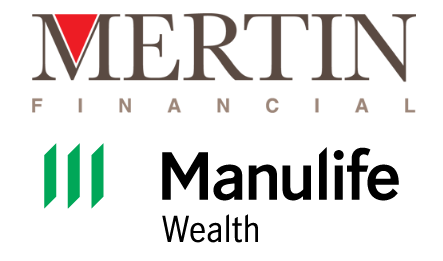How can I avoid making financial mistakes?
Article Licenses: CA, unknown, unknown
Advisor Licenses:
Compliant content provided by Adviceon® Media for educational purposes only.
Every good decision requires a thorough understanding of time-tested financial guidelines. Today we are witnessing an age of entitlement, in which many people are incurring debt as they put their wants ahead of their needs.

Here are a few principles that you’ll need to consider when making every financial decision:
Avoid speculation.
Aim to increase your net financial worth by increasing your income and/or education to advance your position, rather than engaging in speculative schemes. An enticing program or a “guaranteed” money-making scheme may be unethical, illegal or simply unrealistic, not to mention risky.
Every monetary strategy must be assessed in the light of your individual goals while asking these questions: “Is this venture necessary?” “Could this venture fail or cost me money, negating the so-called benefits?”
Keep your finances current.
Manage your finances day to day, according to your monthly budget and financial goals. It’s best not to borrow money beyond your abilities to repay. When investing or consuming, consider every financial obligation in light of known current income or available savings, not as-yet-unknown future change of income or opportunity, or potential income.
Maintain a frugal reputation.
Consider all decisions, especially financial decisions, on the basis of their effect on your reputation, staying true to financial commitments and maintaining an impeccable credit score.
Give. Do not loan.
Avoid lending to those in need if giving is possible. If someone approaches you requesting financial help in order to acquire “wants” or “desires,” seriously question the potential for impulsive spending. However, if that person is in need and your family’s financial well-being will not be jeopardized, consider your ethical responsibility to supply that need on an interim basis. For example you may provide $100 to a family in need for groceries for a month or two until they get back on their feet.
Never co-sign, even for your best friend.
To co-sign is to pledge your family’s personal assets against the debt of another. This means that your energies in life’s ventures (for which you have been paid over time) are being pledged against another’s liabilities and could mean the potential exhaustion of these life energies by a person whose actions you have no control over. You may also place yourself and/or your family in a situation where you legally assume the debts, as well as the legal issues associated with documents co-signed. This could in turn involve liability of collateralized assets like your car(s), or house and your income, or even culpability when there is harm to a third party. Though you may know an individual, often you do not know anyone in the related financial institution, which will hold you responsible for the debt once you sign an agreement. What if they demand payment or sue you for obligations?
Moreover, there is also a tremendous potential to harm your relationship with the individual for whom you co-sign. By signing, you may enable a person to engage in a risky venture, instead of holding off or reconsidering all alternate options.
Avoid indulgence.
Discern the difference between “needs” versus “wants” in every financial transaction — including purchases of material goods and investments. Distinguish between luxuries and necessities and ask: “Do I need to find fulfillment through this expenditure now?”
Prepare for decreases.
Prepare yourself for unexpected decreases in funds as a vital part of keeping financially current. Ask: “What would happen if there were even a small decrease of income or available funds?” “If there was a sudden drop in my income, would I need to drastically reduce my current living standards?” Avoid operating at the upper limit of income or cash on hand.
Let peace rule.
If a financial decision process makes you feel uncomfortable, the inner turmoil (known as lack of peace) may be your conscience guiding you according to your innate higher values. Consider the pros and cons in the light of all your opportunities, including saving money for a particular goal. If you do not have peace, wait, sleep on it and then see how you feel, or do not get involved in the objective or expense. Moreover, if a quick decision is required (such from sales pressure), do not get involved. Take the time to think about each decision, carefully weighing the potential consequences of either gain or loss.
The Advisor and Manulife Securities Incorporated, ("Manulife Securities") do not make
any representation that the information in any linked site is accurate and
will not accept any responsibility or liability for any inaccuracies in
the information not maintained by them, such as linked sites. Any opinion
or advice expressed in a linked site should not be construed as the opinion
or advice of the advisor or Manulife Securities. The information in this
communication is subject to change without notice.
This publication contains opinions of the writer and may not reflect opinions
of the Advisor and Manulife Securities Incorporated, the information contained
herein was obtained from sources believed to be reliable, no representation,
or warranty, express or implied, is made by the writer, Manulife Securities or
any other person as to its accuracy, completeness or correctness. This
publication is not an offer to sell or a solicitation of an offer to buy any
of the securities. The securities discussed in this publication may not be
eligible for sale in some jurisdictions. If you are not a Canadian resident,
this report should not have been delivered to you. This publication is not
meant to provide legal or account advice. As each situation is different you
should consult your own professional Advisors for advice based on your
specific circumstances.





